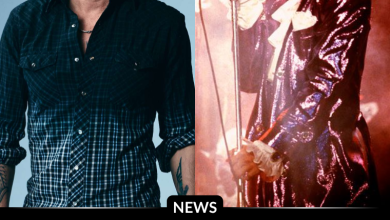Michael Bublé Opens Up About Pre-Fame Struggles: Nine Jobs, Four Rejections, and the Bar Gig That Changed Everything
OPINION: This article may contain commentary which reflects the author's opinion.
Before dazzling audiences with his Grammy-winning voice and reviving the timeless charm of big-band music, Michael Bublé’s journey to stardom was anything but glamorous. In a candid new interview, the Canadian crooner recounted the obstacles he faced, the odd jobs that kept him afloat, and the pivotal performance that would set his career on fire.
“People see the tuxedo, the smile, the showman,” Bublé said, “but they don’t see the guy who was cleaning kitchens at 2 a.m., trying to convince himself that he’d make it one day.”
Nine Jobs Before Fame
Bublé shared that he cycled through nine different jobs to support his music dreams. “I did it all,” he laughed. “I was a fisherman, a nightclub singer, a construction helper, a newspaper boy, even a karaoke host. I just kept moving because standing still scared me.”
One memorable stint as a nightclub doorman in Vancouver allowed him to sing for tips between shifts. “People would walk right past me while I was trying to collect the cover charge, then come back out saying, ‘Hey, that’s the same guy who was singing Sinatra inside!’” he recalled. Other work included cleaning floors, driving an ice cream truck, and performing wherever he could — all while keeping his dream alive.
Facing Rejection
Even with his signature smooth voice, Bublé faced repeated rejection. “I was told no by every label you can name,” he admitted. “They said swing was dead, that nobody wanted to hear ‘crooners’ anymore. I’d leave meetings thinking, maybe they’re right. Maybe I’m just born in the wrong era.” Instead of giving up, he resolved to perform anywhere that would let him.
The Bar Gig That Changed Everything
The turning point came in 2000 at a corporate event in Vancouver — a low-paying gig he almost declined. “I was up there singing ‘Mack the Knife’ to the sound of clinking glasses and drunk laughter,” he said. Yet in that crowd was Michael McSweeney, an aide to former Canadian Prime Minister Brian Mulroney, who introduced Bublé to Mulroney. That connection eventually led to an introduction to legendary producer David Foster, who told Bublé, “Kid, we need to make a record.”
One Song, One Suit, One Shot
When Bublé released his self-titled debut album in 2003, it reflected years of struggle and perseverance. Tracks like “Fever” and “For Once in My Life” showcased his blend of swing, soul, and sincerity, capturing the attention of audiences worldwide.
Gratitude and Reflection
Now, decades into his career, Bublé remains grounded. “Every time I step on stage, I think about that kid mopping floors,” he said. He even keeps one of his old, cracked microphones in his home studio as a reminder of his beginnings.
With a trademark grin, he summed up his journey: “Nine jobs, four rejections, one bar gig. That’s how you build a dream — one song at a time.”
Bublé’s story serves as a powerful reminder that perseverance, humility, and a little bit of luck can turn even the humblest beginnings into a global stage.



